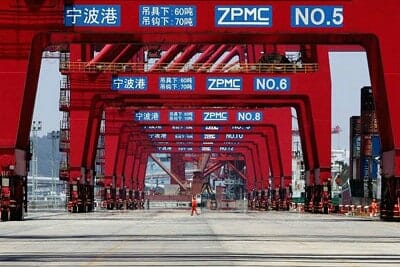The 2014 real estate slowdown could rapidly transform into a 2015 property bloodbath if statistics on trust obligations owed by China’s property developers prove true, and a recent scandal surrounding commodity-backed loans is helping to further cloud the country’s credit situation.
According to data released last week by China research agency Use Trust, the country’s network of private wealth management products must repay RMB 203.5 billion yuan ($32.7 billion) in loans next year.
The obligations these elements of China’s shadow banking sector owe for the coming year more than double the amount that the nation’s less credit-worthy borrowers need to repay in 2014. This increase in debt obligations comes at a difficult time for China’s real estate industry, many of whom rely on trusts for mezzanine financing, as a market slowdown hurts developer revenues.
During the second quarter of 2014, new sales of trust products in China fell to RMB 40.7 billion – the lowest level since 2012.
China Commodity Credit Also Drying Up
Another sign of China’s desperate credit markets cropped up last week when state-owned Citic Resources Holdings Ltd. (1205.HK) admitted that about half of the metals stockpiles it had pledged against loans could not be located.
According to reports in Reuters, the authorities are currently investigating a private metals trading firm operating at Qingdao port that may have used duplicate certificates to pledge the same collateral against several loans. The scandal now includes some of China’s major finance firms, including Citic.
As bank financing has tightened in China, alternative financing such as commodities-backed loans have become more popular, and in the absence of strict controls the sector appears to be ripe for shenanigans. In the Qingdao case which has already been brought before the city’s courts, Citic admitted in a statement to the Hong Kong Stock Exchange that, “the Qingdao court has been unable to sequester about 123,446 MT (metric tonnes) of alumina which the group has stored at Qingdao port,”
In the wake of the apparent commodities fraud, The Wall Street Journal reported that foreign banks doing business with Chinese firms are pulling back on loans backed by commodities as collateral, according to sources in the regional finance industry. Banks which have not yet cut off credit secured by commodities are seeking to secure additional protection from borrowers and moving collateral to more secure locations, including ports outside China.
Smaller Developers Rely on Trusts
While China’s largest developers can often rely on overseas-listed entities to secure offshore debt financing, the country’s smaller builders are more likely to need to rely on the trust market. Developers often need to pay lenders 14-19 percent returns, even after paying management fees to banks or other financial institutions.
Last year in an effort to cool-down over-investment, particularly in the real estate sector, the country’s mainstream banks cut back sharply on lending to property projects.
Estimates from Beijing-based investment banking and research services company China International Capital Corp, put mezzanine financing at up 10 to 20 percent of annual property investment in the nation, with the bank estimating the size of the investment sector at RMB 200 billion ($33 billion) last year.

Leave a Reply